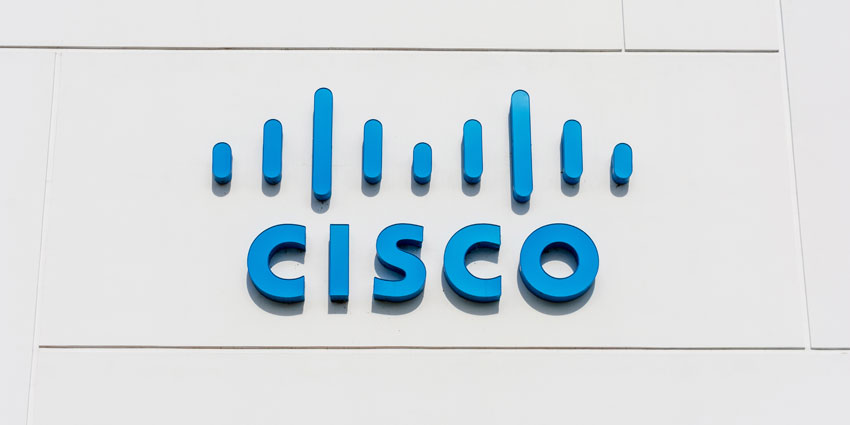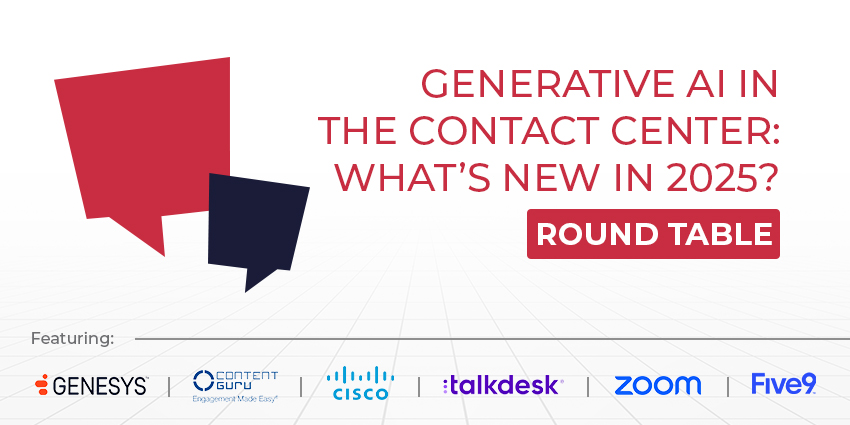Since the pandemic, companies have been investing in the transformation of the contact center and CX stack at an alarming rate. Consumers are demanding greater speed, convenience, and personalization when interacting with companies.
To maintain the agility and scalability required to deliver exceptional experiences, companies are turning to the cloud. The CCaaS market alone is poised to grow to a value of $19.8 billion by 2031, highlighting the evolving demand for this technology. However, while cloud solutions deliver a host of benefits to businesses, they’re not always easy to implement and manage.
Contact center leaders frequently encounter issues with everything from maintaining compliance standards during a cloud migration, to preserving visibility into the technology stack. Fortunately, Global System Integrators (GSIs) could be the solution.
“Without proper planning and guidance, customers do not establish a baseline for their customer experience before and after transformation, resulting in a number of challenges, including integration complexities, the cost of migration, potential disruptions, and downtime that negatively affect service quality, customer satisfaction, and agent productivity”, says Gurpreet Singh Kohli, Senior Vice President and Global Head of Telecom & Networks, HCLTech
How GSIs Enhance the CX Technology Stack
Combining industry expertise, technical knowledge, and best practices, GSIs are a valuable partner for any organization embracing the cloud landscape. They empower companies and service providers to unlock technical innovation, with minimal downtime, disruption, and complexity.
Global Systems Integrators help businesses of all sizes achieve their digital transformation goals, while simultaneously allowing them to leverage existing investments in processes and technology.
Here are some of the key ways GSIs help maximize the CX stack:
Enhancing the Transition to the Cloud
As mentioned above, the cloud has become an essential platform for organizations looking to innovate, deliver unique experiences, and manage data. Enterprises are transforming business processes by using the cloud for both scale and data management.
However, there are many hurdles to overcome on the path to success. Companies dealing with evolving on-premises, hybrid, and multi-cloud environments can struggle with data fragmentation, complexity, and siloed resources. GSIs help organizations overcome these hurdles.
Using extensive expertise, GSIs design comprehensive cloud-based systems designed to suit the needs of their enterprise customers. They assist companies with powerful “application modernization” strategies, provide access to powerful automation and AI tools, and even offer a range of multi-cloud services and initiatives, tailored to each company.
Full Stack Observability
As companies continue to digitally transform their CX initiatives, traditional application monitoring tools are struggling to keep up with the changes. Most legacy solutions can’t provide full visibility into applications and underlying infrastructure, making it harder to manage performance.
As a result, 54% of companies are searching for ways to transition to full-stack observability strategies. Instead of deploying multiple disconnected tools for monitoring, they’re working with Global Systems Integrators to unify their tools and data.
GSIs empower companies to access a single, unified view of technology performance across the IT stack. This ensures companies can make decisions based on end-user impact and growth. By bridging the gaps between monitoring tools and insights, GSIs pave the way for smoother transformation.
Driving Transformation Through Partner Ecosystems
Unlocking the benefits of a complex technology landscape and digital transformation requires an investment in networks that bridge the gaps between businesses and consumers. To access innovative, customized solutions for CX, businesses need access to a range of innovators and specialists.
Global Systems Integrators benefit from a strong international presence, and CX leaders offering access to GSI partner networks can help organizations find the solutions best suited to their needs. For instance, innovators can connect companies to GSIs with experience in specific industry verticals.
They can offer access to partners capable of filling product or technology gaps in the CX stack, and power the way for consistent growth. GSIs are committed to remaining constantly relevant to their customers, by predicting trends, anticipating evolving needs, and offering solutions that deliver business outcomes that truly matter to each business.
Remote IT Support
In 2022, 35% of employees in America had the opportunity to work from home full-time. While hybrid work has become more common in 2023, the distributed nature of today’s teams makes it difficult to deliver consistent IT support.
Businesses need to be able to cater to the needs of a flexible workforce, ensuring team members can access and use the tools they need efficiently to deliver exceptional service. Global Systems Integrators can play a crucial role in delivering consistent and remote support.
They can identify the IT challenges end customers face, and integrate solutions to help them solve them. These partners are quickly emerging as “extensions” of the modern business, giving companies access to flexible expertise when they need it most.
Best Practices for Choosing a GSI
There’s no one-size-fits-all strategy to choosing a Global Systems Integrator. The right partner for your business will depend on a number of factors. However, it is important to take a few key points into account when assessing your options:
- Scope of work: What exactly do you need to do to transform your CX stack? How much of the process can you handle in house, and how much support will you need from a GSI?
- Data privacy: What kind of data, privacy, security, and regulatory requirements does your organization need to adhere to. Is your GSI compliant with these standards?
- Support options: How much support can your GSI offer in terms of consulting, remote IT assistance, onboarding guidance and beyond?
- Transition timeline: When do you need your CX transformation strategy to be completed? How quickly can your GSI help you unlock the ROI of your initiative?
- Risks and mitigation: What kind of risks and threats will you need to overcome when implementing your new initiative. What kind of assistance can your GSI provide?
- Pricing methodology: For most GSI initiatives, you’ll need to pay a fixed price for the duration of your contract. However, some solutions are offered on a time and material basis.
Unlocking the Benefits of CX Transformation with a GSI
Transforming your CX strategy to adhere to the changing expectations of modern customers requires more than just the implementation of new technologies. Companies need to ensure their tech stack is aligned, and integrated, to allow for a consistent flow of data and enhanced productivity.
Working with Global Systems Integrators provides companies with access to the expertise, technology, support, and guidance they need to empower transformational success. They help organizations not only embrace new solutions, but make the most of their existing investments.
HCLTech’s Fluid Contact Center offerings, services, and frameworks are centered around improving customer experience metrics and business performance, with access to a broad selection of CX mentors, consultants, and evangelists, as well as strategic partners.
This paves the way for companies to unlock leadership in the CX space, accessing the expertise and assistance they need to out-perform the competition.
“GSIs create a unified and efficient environment for best-in-class technology, skills, and best practises to streamline contact center transformation. They help brands navigate the complexities of transformation projects with ease and save cost and reduce time to market for the outcomes”, says Gurpreet Singh Kohli, Senior Vice President and Global Head of Telecom & Networks, HCLTech
To learn more, please feel free to connect with the HCLTech team at [email protected].







